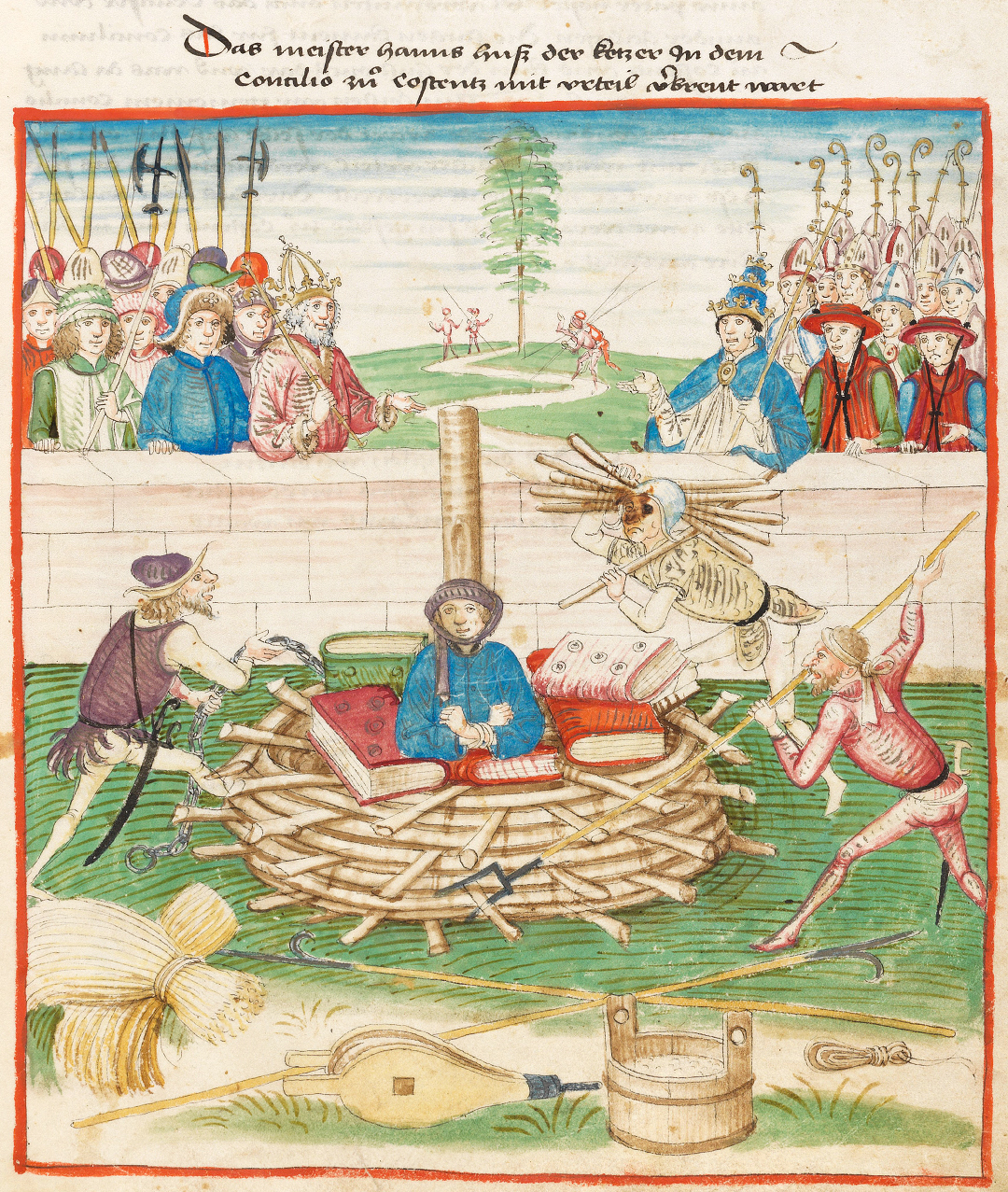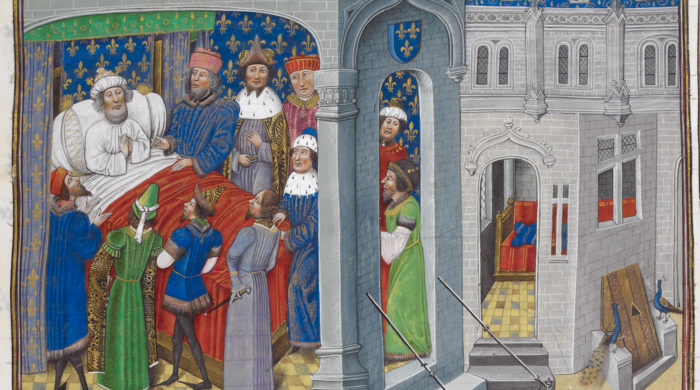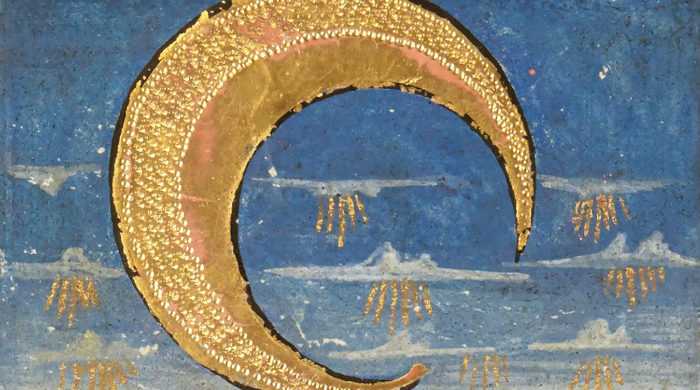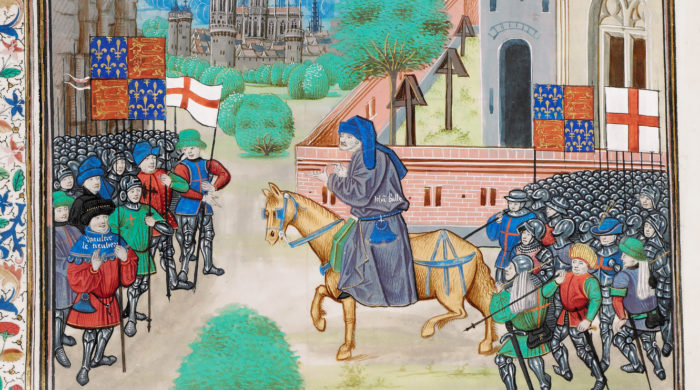JAN HUS
 July 6, 1415: Jan Hus, the Czech theologian now considered to be one of the main predecessors of the Reformation and Protestantism, is burned at the stake.
The 15th-century Catholic Church was living a time of great struggle, following the Papal Schism of 1378 and the election of a third "antipope" in 1409: this had led to a traffic of indulgences in order to raise money for crusades between the various factions. Around the same time, Prague and its University were condemned by the Church for their support to the theories of John Wycliffe, an English scholar attacking the privileged status of the clergy and advocating for translation of the Bible into vernacular. Hus, having served as rector of the University and as preacher and priest in the local Bethlehem Chapel, constantly addressed both issues and was very vocal against the impositions and the hypocrisies of the Church.
In 1414 a general council was held in Constance and Jan Hus agreed to attend, hoping to discuss and put an end to all dissensions. On November 27, however, Hus was deceitfully arrested and incarcerated. Asked to recant his "heretical" teachings and ideas, Hus refused and, on July 6, was officially condemned. While Hus prayed God to forgive his accusers, a paper hat showing the drawing of three demons (along with the inscription "Haeresiarcha") was put upon his head: Hus was then led to the place of his execution, where he was finally burned at the stake.
As he died, Hus (“Hus” signifying “goose” in the Bohemian language) allegedly pronounced his last words:«You may roast the goose, but a hundred years from now a swan will arise whose singing you will not be able to silence». A century later, incidentally, Martin Luther would claim the swan as his own symbol.
"Execution of Jan Hus", illumination from the manuscript "Amtliche Berner Chronik, vol. 1" by Diebold Schilling, ms. Mss.h.h.I.1, f. 183r, Burgerbibliothek, Bern.
July 6, 1415: Jan Hus, the Czech theologian now considered to be one of the main predecessors of the Reformation and Protestantism, is burned at the stake.
The 15th-century Catholic Church was living a time of great struggle, following the Papal Schism of 1378 and the election of a third "antipope" in 1409: this had led to a traffic of indulgences in order to raise money for crusades between the various factions. Around the same time, Prague and its University were condemned by the Church for their support to the theories of John Wycliffe, an English scholar attacking the privileged status of the clergy and advocating for translation of the Bible into vernacular. Hus, having served as rector of the University and as preacher and priest in the local Bethlehem Chapel, constantly addressed both issues and was very vocal against the impositions and the hypocrisies of the Church.
In 1414 a general council was held in Constance and Jan Hus agreed to attend, hoping to discuss and put an end to all dissensions. On November 27, however, Hus was deceitfully arrested and incarcerated. Asked to recant his "heretical" teachings and ideas, Hus refused and, on July 6, was officially condemned. While Hus prayed God to forgive his accusers, a paper hat showing the drawing of three demons (along with the inscription "Haeresiarcha") was put upon his head: Hus was then led to the place of his execution, where he was finally burned at the stake.
As he died, Hus (“Hus” signifying “goose” in the Bohemian language) allegedly pronounced his last words:«You may roast the goose, but a hundred years from now a swan will arise whose singing you will not be able to silence». A century later, incidentally, Martin Luther would claim the swan as his own symbol.
"Execution of Jan Hus", illumination from the manuscript "Amtliche Berner Chronik, vol. 1" by Diebold Schilling, ms. Mss.h.h.I.1, f. 183r, Burgerbibliothek, Bern.
Post consigliati
Charles V of France
September 16, 1380: on this day, King Charles V of France died after…
Moonlight
Un piccolo passo per un uomo, un grande balzo per l'umanità. Dopo aver…
John Ball
July 15, 1381: the English priest John Ball is hanged, drawn, and quartered because…


